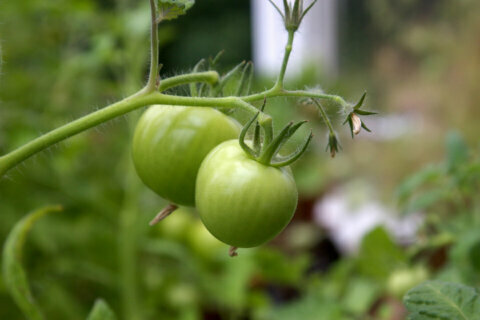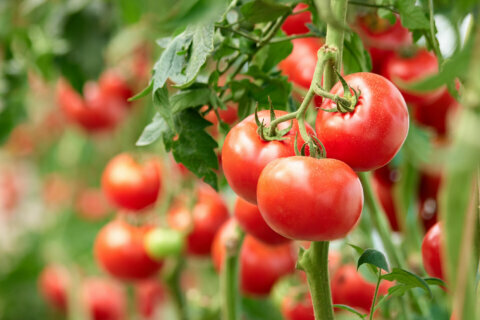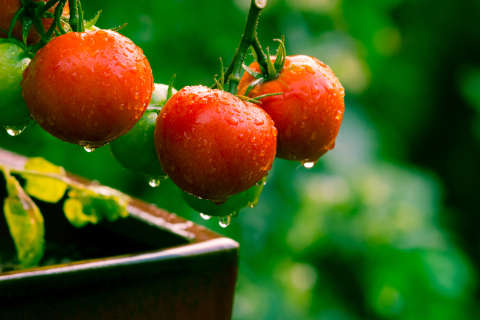New GI Bill program trains veterans to grow
On Monday, we celebrate Veterans Day conscious of the fact that way too many of our veterans are having trouble finding meaningful work when they return home. At the same time, America is in the midst of a farming crisis. There just aren’t enough young people entering the field to meet demand — especially in the rapidly growing areas of organic and sustainable food production.
One innovative solution that addresses both problems is “The Organic Farming Program.” It’s a one-year certificate course geared toward veterans that’s currently being offered by The Rodale Institute in partnership with Delaware Valley College in Pennsylvania, where qualified veterans can have up to 100 percent of their tuition paid.
For more information on the program’s specifics, visit the Delaware Valley College website.
Last call to feed lawns legally in Maryland
Pat in Greenbelt, Md., is already getting hip to Maryland’s new lawn fertilizer laws. She writes: “Espoma [the makers of Holly-Tone and other natural plant foods] sells 25-pound bags of corn gluten meal. What percent of that is nitrogen? And how much can I use on my lawn and stay within the new regulations?”
A little research on its website reveals that Espoma’s corn gluten meal has an NPK (Nitrogen-Phosphorus-Potassium) rating of 9-0-0, Pat, which means that 10 pounds of its corn gluten meal would provide the legal limit of 9 pounds of nitrogen when applied to 1,000-square-feet of turf. So a 25-pound bag would legally feed 2,500-square-feet of lawn.
But don’t delay, the new laws prohibit lawn fertilization by homeowners after Nov. 15, so you have less than a week left to get that gluten down.
Winter garden care: Leaf mulch is easy, cover crops are hard
Lindsay in the Newark Street Community Garden in D.C. has a great question. She writes: “I’m looking for ‘tried and true’ recommendations for building soil health over the winter. I tried growing some fava beans a few weeks ago as a cover crop but didn’t have much luck.”
Cover crops are complex, Lindsay. You need to time their planting perfectly so that the seeds have warm soil in which to sprout and then a fairly specific amount of time to grow before the plants winter-kill. Then you have to be ready to till them into the soil at a precise time in the spring.
At this point in the season, your best bet is to simply cover your growing beds with 2 inches of shredded leaves to prevent weeds, protect against soil erosion and retain nutrients over the winter.
Then do a lot of research and perhaps next season you’ll be ready to sow something like rye or vetch in late summer, while the soil is warm enough for good germination.
Fungus gnats: A perennial houseplant pest
Charles in Falls Church, Va., writes: “I have some tiny flies hanging around my houseplants. They seem to have ‘arrived’ after I repotted the plants. Is there a way to remove these tiny flies that may be making a home in my plants’ potting soil?’
Yes, Charles. Those fungus gnats are technically tiny flies, and they’re easy to control. You can wipe out the nasty little worm-like larvae living down in the soil by drenching the dirt with BTI, the same all-natural product used to kill mosquito larvae outdoors. You’ll find versions of this organic control specifically labeled for use on houseplants, like this one from Gardens Alive.
Or you can cover the surface of the soil with an inch of sand to prevent the adult flies from getting through to the soil to lay more eggs. Either method breaks the cycle, and the little annoyances soon disappear.
Oh, and fungus gnat problems are always worst when plants are overwatered, so have a light hand with the H2O, especially as we head into the winter, when plants use much less water.
Horse manure good for grasses, bad for tomatoes
John in Upper Marlboro, Md., writes: “We have several horses, and consequently lots of horse poop. We typically heap the manure and stable bedding up in piles of approximately 5 cubic feet, turn them once a week for about five or six months and then use the result in the garden and on our pastures. Is there a better way of using this resource?”
Yes, John. Make one huge pile instead of lots of small ones. The increased bio- mass will generate so much inner heat that you won’t have to turn them anymore and they’ll contain fewer weed seeds.
Stop using it in the vegetable garden for anything other than sweet corn. Horse manure is so full of nitrogen that it grows very big plants, but inhibits flowering on fruiting crops, such as tomatoes, peppers and cukes. (So you get the fabled 20-foot high tomato plant with two tomatoes on it.)
But composted horse manure is the perfect fertilizer for your pasture. Both lawn and pasture grasses thrive on the natural nitrogen it contains.
Follow @WTOP and @WTOPliving on Twitter.







